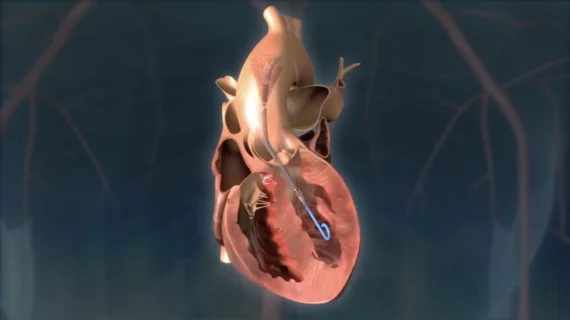Abiomed’s Impella heart pumps are associated with improved 30-day survival rates for cardiogenic shock patients, according to two new studies presented at Transcatheter Cardiovascular Therapeutics (TCT) 2022 meeting in Boston.
Both studies examined data from a three-year analysis of more than 1,300 Impella-supported patients treated at one of 109 hospitals in Japan. All data came from the J-PVAD Registry, a collaboration between 10 different Japanese medical societies.
The first of the two studies focused on nearly 300 patients who presented with cardiogenic shock related to an acute myocardial infarction (AMI). Survival for this group after 30 days was 81%, a significant increase compared to the 50% 30-day survival rate typically seen in AMI cardiogenic shock patients.
“The results of this study demonstrate that when Impella is used and best practices are followed, it is possible to achieve heart recovery and greater than 80% survival rates for patients with AMI cardiogenic shock,” interventional cardiologist Junya Ako, MD, PhD, chair of the department of cardiovascular medicine at Kitasato University Hospital in Japan and the study’s lead investigator, said in a statement from Abiomed.
The second study presented at TCT 2022 focused on 143 patients who presented with cardiogenic shock due to myocarditis. Survival for this group after 30 days was 77%, which was once again a notable increase compared to the 48% 30-day survival seen in a previous analysis.
“These findings further demonstrate the potential of increasing native heart recovery in myocarditis patients through the use of Impella, which is an important consideration given the limited number of heart transplants,” cardiovascular surgeon Koichi Toda, MD, a specialist with the Osaka University Graduate School of Medicine and the study’s lead investigator, said in a separate Abiomed statement.
Myocarditis, of course, has received more attention in recent years due to being one the most worrying side effects of COVID-19. Some COVID-19 vaccines were even associated with a slightly higher risk of myocarditis, though that risk was never as high as the risk of COVID-related myocarditis.
TCT 2022 was held in Boston from Sept. 16 to Sept. 19. Cardiovascular Business was live on the scene; click here to review our coverage.

